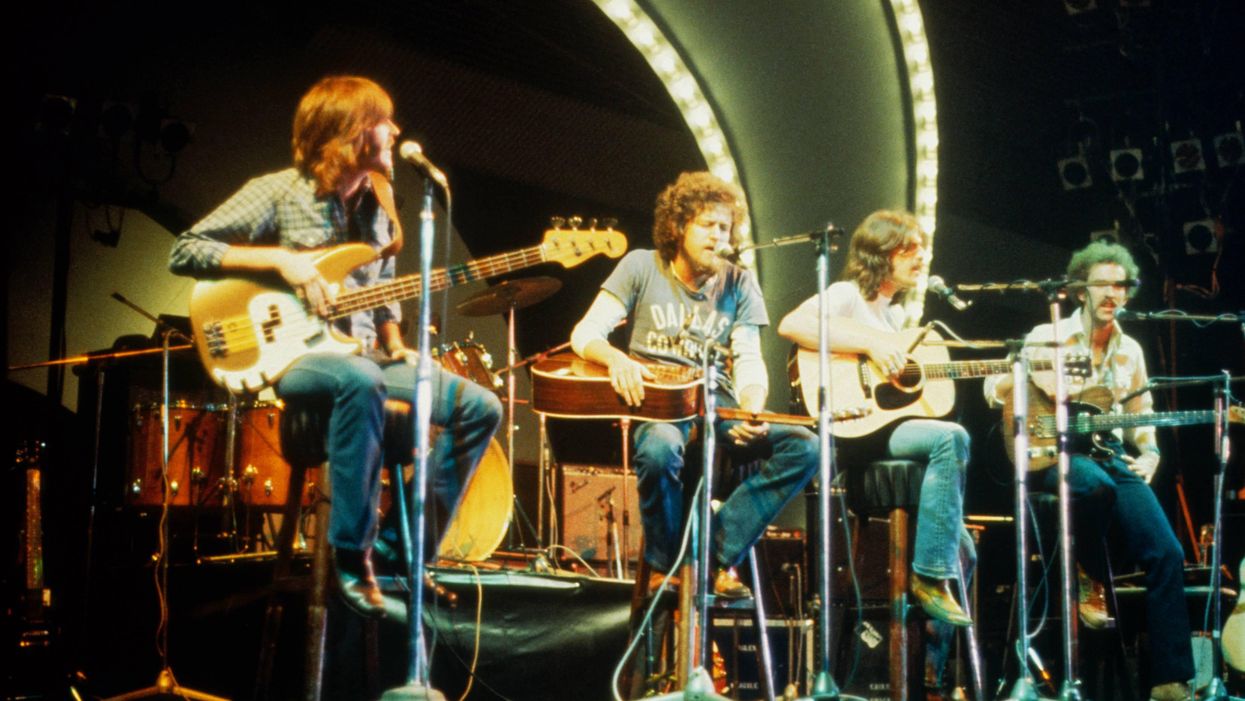Nevins is co-publisher of The Fulcrum and co-founder and board chairman of the Bridge Alliance Education Fund.
Arguably "Hotel California," the classic rock hit from 1976, is the Eagles' most iconic song. It has sold over 16 million copies in the United States alone and lives to this day as one of the greatest rock songs of all time.
As I listen to the news every day I become more and more frustrated with the unbridled lack of civility, crippling partisanship and dysfunctional gridlock that is preventing our country from solving the serious problems we face on a daily basis.And yesterday as I watched the news, as I do often, and witnessed yet again the political circus play out before my eyes my mind shifted from the news of the day to a refrain from a song I had just listened to in my car. The refrain kept repeating in my mind: "You can check-out any time you like, but you can never leave!"
It has been quite some time since I last listened to the song, but I listened again yesterday I was once again moved by the masterful words of Glenn Frey, who wrote the lyrics with band members Don Henley and Don Felder. And as I listened my mind turned to the many theories that abound as to what the song means.
- Is it about excess in America, as a whole?
- Is it a commentary on the hedonism and self-indulgence of the time?
- Or is it something else?
"It's basically a song about the dark underbelly of the American dream and about excess in America, which is something we knew a lot about," Henley said in a 2002 interview with "60 Minutes."
"We were all middle class kids from the Midwest," Henley said. "'Hotel California was our interpretation of the high life in L.A."
As I listened my mind connected my concerns about the state of our democracy to the most famous lyric of them all from this epic song: "You can check out any time you like, but you can never leave" The more I listened the more I thought that yes, indeed, these words apply to the politics of division and dysfunction that exists in our country today.
And so I researched more and learned that after the outline of the song was written, it was modified to address the temptation and the hidden traps that could corrupt you if you stayed too long at "Hotel California." Luca Divelti gave his own interpretation of the song in 2018:
"You can check out any time you like, but you can never leave"became the sentence that revealed the hoax and showed the dark side of the place. The song thus depicted a veil of social criticism towards the foundations of the American Dream, (a) symbol of the illusion of a better future that can also turn into an endless torment, able to lure you with its promises and then deceive you: leaving California means losing hope forever, and it would be a shame to leave the suite in the hotel of dreams.
And perhaps these words from Don Henley describes the magic of the song best:
"It's a journey from innocence to experience."
I wonder, is it as simple as that? Is it a journey for us individually and collectively? We are, undoubtedly, on a journey of inevitable change that never goes quite as planned. And as we take this journey, "along the way most of us want to check out but for some we can never quite leave."
So welcome to the Hotel California.
There's plenty of room at the Hotel California.
What's your take on this idea?
Does the song scare you? Does it inspire you? Or is it just a masterful rock song meant to be enjoyed for the superlatively crafted arrangement that features many layers of acoustic guitar?.
What is Hotel California for you?
Please share with us your ideas by writing to us at pop-culture@fulcrum.us.



















Trump & Hegseth gave Mark Kelly a huge 2028 gift